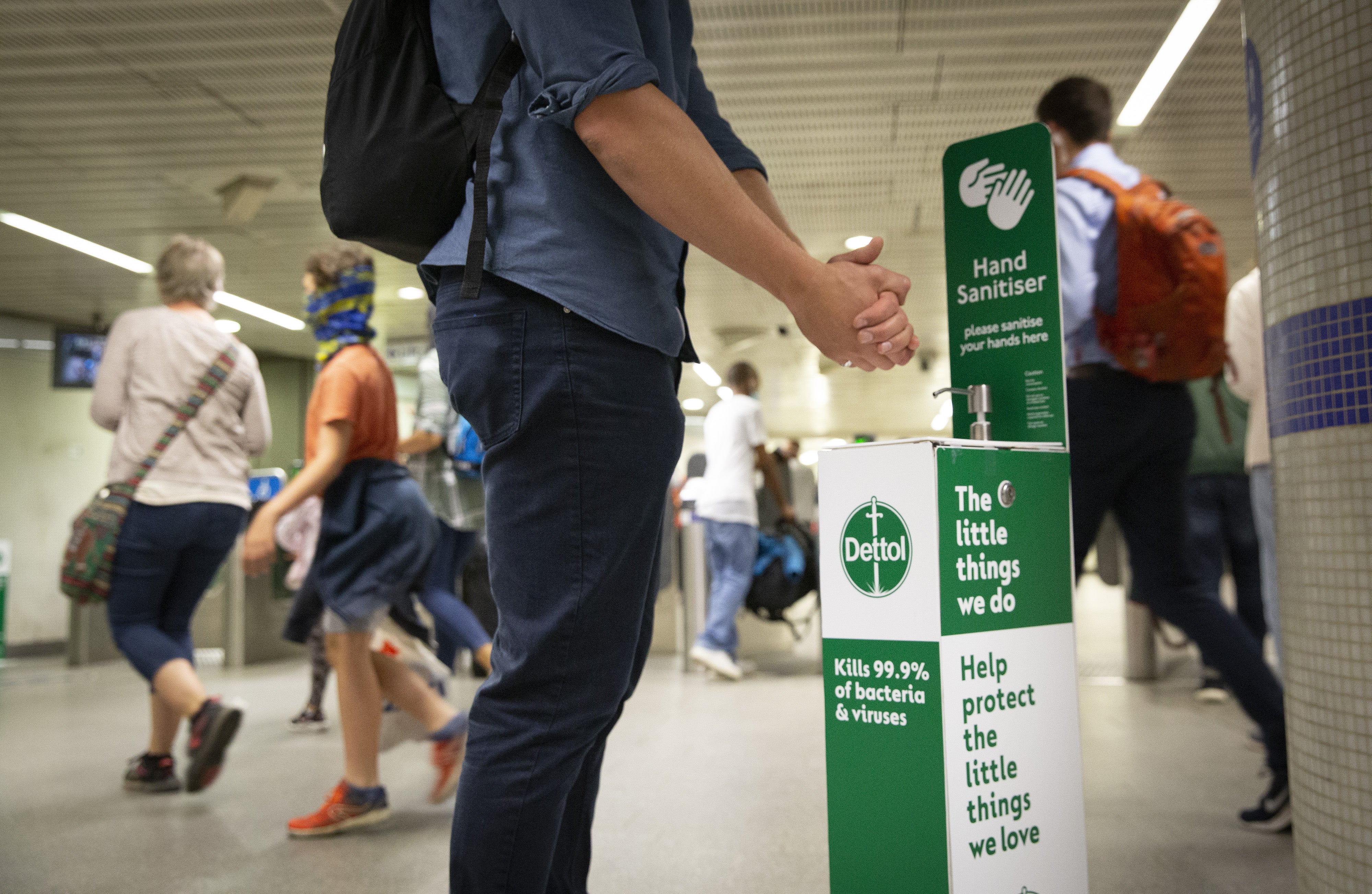Analysts expect costs to squeeze Reckitt as supply chains remain tight
Revenue will likely dip as disinfectant sales drop.

Your support helps us to tell the story
From reproductive rights to climate change to Big Tech, The Independent is on the ground when the story is developing. Whether it's investigating the financials of Elon Musk's pro-Trump PAC or producing our latest documentary, 'The A Word', which shines a light on the American women fighting for reproductive rights, we know how important it is to parse out the facts from the messaging.
At such a critical moment in US history, we need reporters on the ground. Your donation allows us to keep sending journalists to speak to both sides of the story.
The Independent is trusted by Americans across the entire political spectrum. And unlike many other quality news outlets, we choose not to lock Americans out of our reporting and analysis with paywalls. We believe quality journalism should be available to everyone, paid for by those who can afford it.
Your support makes all the difference.Investors will flick to the costs pages in Reckitt to find out what the squeeze on global supply chains has done to the company’s bottom line as it releases its third-quarter results next Tuesday.
The consumer goods giant is expected to have reported a 0.7% drop in its revenue when discounting the effects of selling one of its Chinese business arms.
Revenue will reach around £3.06 billion, according to a consensus of analysts which was supplied by the company.
There is no consensus for what profit Reckitt is likely to make, however experts expect that rising costs are likely to cut into the business.
“Rising input costs are expected to eat into Reckitt’s profit margins in the second half,” said Hargreaves Lansdown analyst Nicholas Hyett.
“With volume growth also somewhat lacklustre at the half year, the group has its work cut out.”
Part of the challenge the group faces is the very strong results reported in 2020 – as coronavirus concerns drove uptake of its health and hygiene products
The company will also be fighting against its own success. As the pandemic raged last year, sales of cleaning products Lysol and Dettol unsurprisingly spiked.
The company even had to warn customers not to inject the disinfectants after a dangerous comment from US president Donald Trump that it could perhaps be used to treat Covid.
As vaccines have been rolled out across the world, sales of cleaning products have waned, making comparisons against last year difficult for a firm like Reckitt.
“Part of the challenge the group faces is the very strong results reported in 2020 – as coronavirus concerns drove uptake of its health and hygiene products,” Mr Hyett said.
“That will remain the case in the second half, and in all honesty, we would view flat numbers as a positive result in products like Dettol and Lysol.
“Reckitt also completed the disposal of its Chinese infant nutrition business in September. As a long-term detractor from performance, the completion of that bit of housekeeping should mean management have more time to focus on core business going forwards.
“That can only be good news.”
In an update to shareholders last month, Reckitt said that it was trading in line with expectations. But those expectations had been set in July, when the business said that the demand for cleaning products had peaked.
It expects revenue to grow by up to 2% during the financial year, analysts set the figure at around 1.4%.
The company said: “Trading since the half-year results on 27 July has been in line with management expectations.
“The disposal of IFCN China was completed on 9 September and, as previously stated, our guidance excludes the contribution of this business for the entirety of the year.”